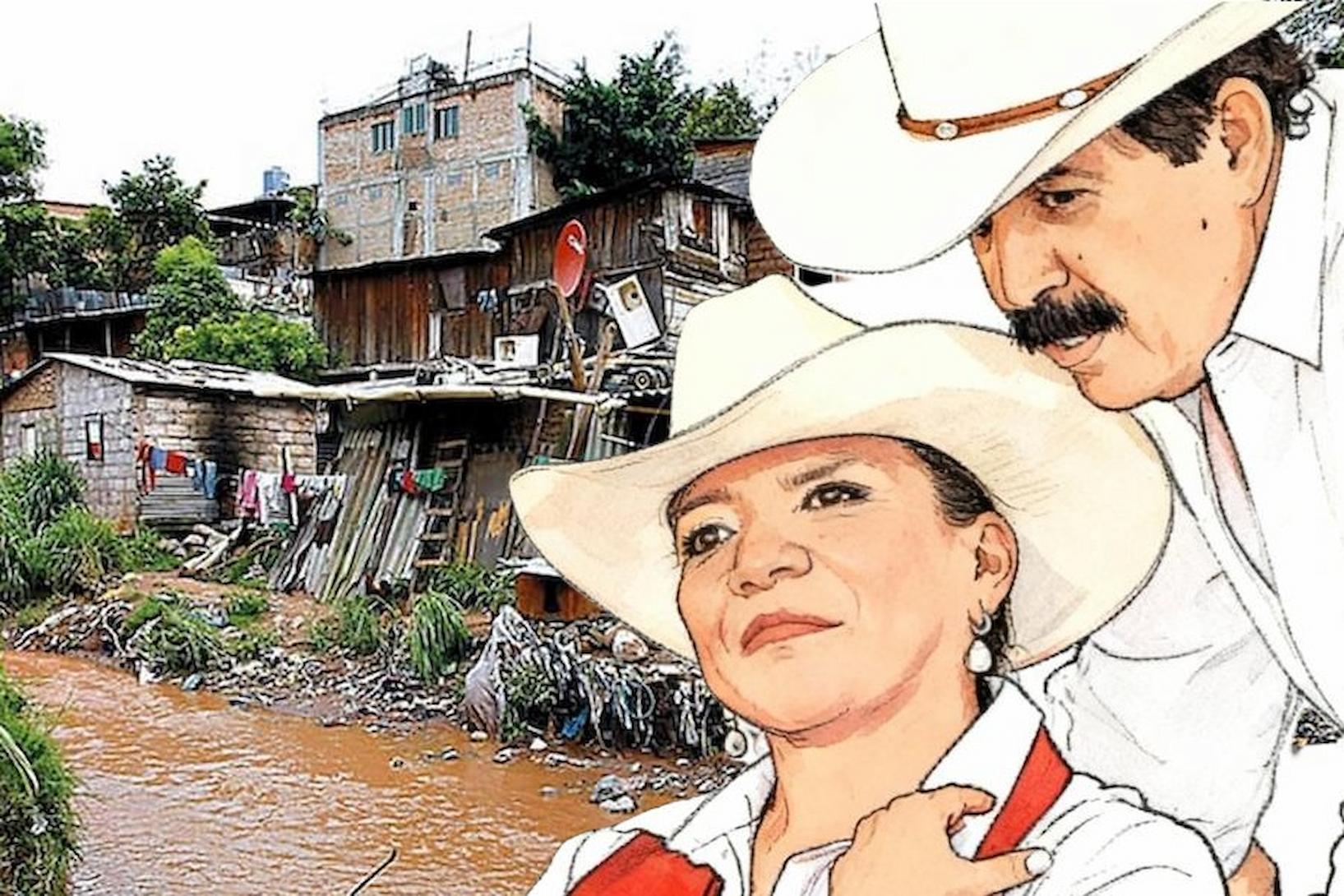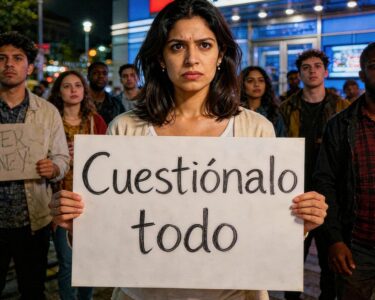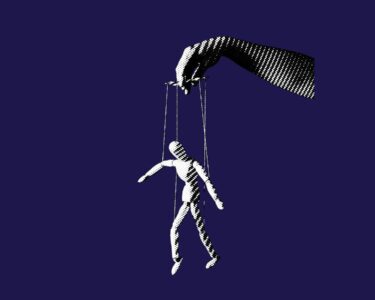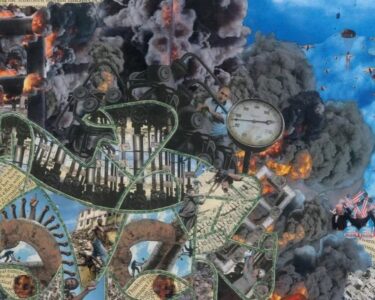The politicization of the armed forces, and the use of promotions, privileges and complicity in illicit economies as tools of loyalty-building, have been a constant.
Over the next nine days, Honduras is entering a zone of extremely high political risk. On November 30 the country will elect its next president and define a new balance of power, but at the same time something equally decisive will be put to the test: whether the electoral authorities, the Public Prosecutor’s Office and the Armed Forces respect that popular will or are instead used to distort it, ultimately absorbing Honduras into the logic of power of the so-called twenty-first-century socialism, which for two decades has turned state capture into a refined, exportable and coordinated technique.
The political partnership formed by Manuel “Mel” Zelaya and Xiomara Castro is neither an isolated nor a merely domestic phenomenon. It is the Honduran expression of an ideological, financial and operational architecture that links Tegucigalpa with Caracas, Havana and Managua, and with regional hubs such as the São Paulo Forum and the Puebla Group.
Libertad y Refundación (LIBRE), the ruling party, is not a marginal satellite: it appears as a governing party on the membership list of the São Paulo Forum and hosted the Forum’s 27th Meeting in Tegucigalpa in June 2024, an event hailed as a symbolic triumph for the “pink galaxy” bloc in Central America.
The long shadow of Mel Zelaya over Honduras begins, in this phase, in January 2008, when his government signed onto Petrocaribe and moved at accelerated speed towards Hugo Chávez’s geopolitical project: subsidized oil in exchange for political alignment and strategic loyalty. That shift, reinforced by entry into ALBA, was perceived by many as a change of orbit: Honduras ceased to move in the traditional Central American sphere and instead integrated de facto into the Bolivarian axis.
When, in 2009, Zelaya, acting outside constitutional channels, pushed a consultation aimed at opening the door to re-election, he activated precisely the entrenched “stone clause” of the Constitution that orders his immediate removal from office; Congress, with votes even from his own party, and the Supreme Court endorsed that removal and the arrest warrant.
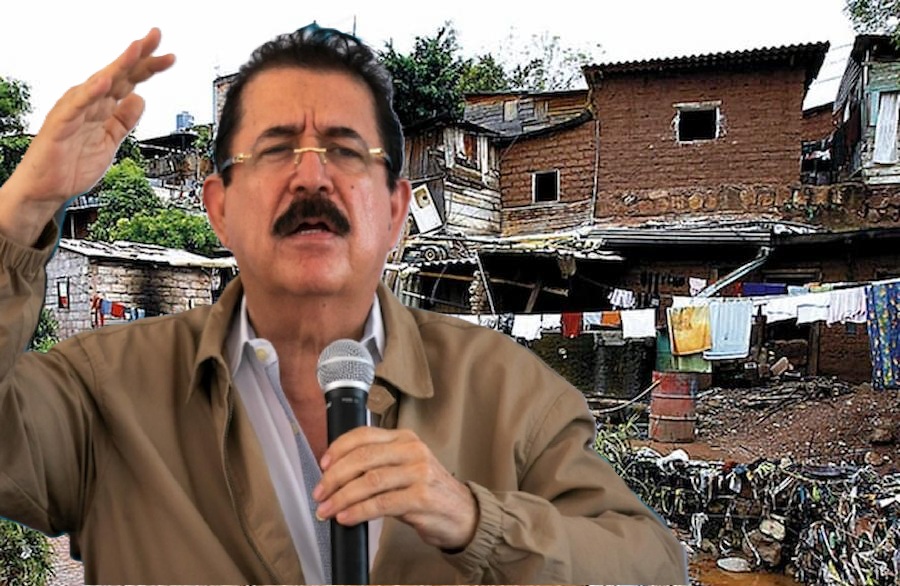
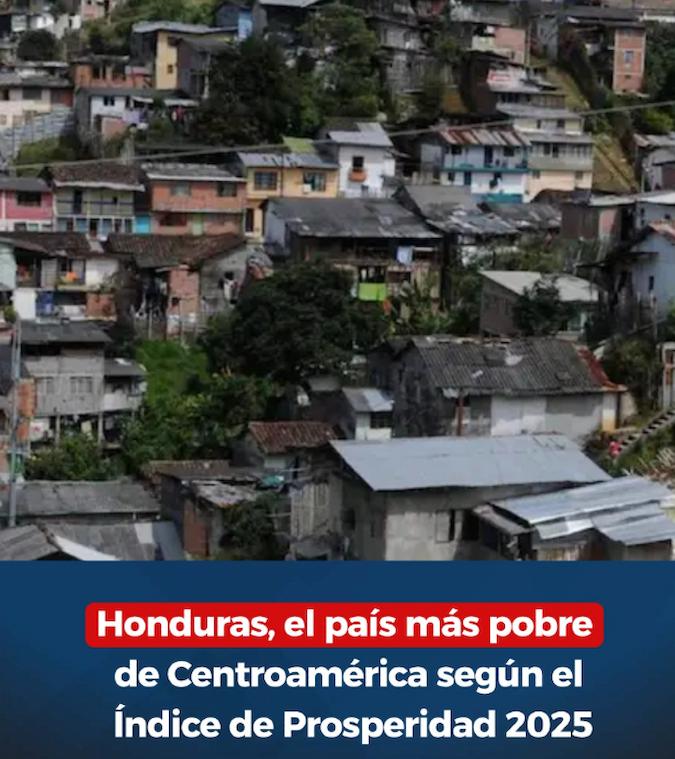
The subsequent decision by the military high command to fly him out of the country, instead of detaining him and placing him at the disposal of the courts, was the illegal act that allowed chavismo and its allies to present the crisis as a “coup d’état” and to colonize the international narrative. That storyline did not break Zelaya’s relationship with the Bolivarian axis; it merely interrupted it. Years later he returned not as a defeated actor, but as a “presidential adviser” and the real power broker in his wife’s government.
Xiomara Castro has not bothered to disguise that continuity. At the UN General Assembly and at the EU–CELAC Summit she has openly and repeatedly defended the dictatorships of Cuba, Venezuela and Nicaragua, calling for an end to sanctions and embargoes and blurring the systematic human-rights violations documented by international organisations.
Various research centers have emphasized that her government has become an active ally of those regimes, while allegations of supposed links to drug trafficking by officials and close relatives continue to mount.
That convergence is not merely ideological. The president’s brother-in-law, Carlos Zelaya —until recently the secretary of Congress— was recorded in 2013 receiving and negotiating money with drug traffickers from the Los Cachiros cartel to finance Xiomara Castro’s first presidential campaign; that “narcovideo”, released in September 2024, shows this with absolute clarity, and Zelaya himself has publicly admitted having taken part in that meeting.
Yet the attorney general, Johel Antonio Zelaya Álvarez, a figure close to the government and a cog in the Zelaya political machine, has to this day failed to pursue any effective criminal action: there is no prosecutorial indictment, no precautionary measures and no formal charges against those involved, despite the confession and the audiovisual evidence.
From a criminal-law perspective —and in light of the State’s international obligations in the fight against organized crime— a public admission of facts such as participation in a financing meeting with drug traffickers constitutes a serious indication that requires the immediate opening of investigative proceedings; in this case, however, not even a minimally serious inquiry has been attempted.
On 28 August 2024, in the midst of heightened tensions with the United States Embassy, President Xiomara Castro ordered the denunciation of the extradition treaty with that country, the very mechanism that allowed former president Juan Orlando Hernández to be sent to prison in New York for drug-related offences.
Days later, on 3 September, the narcovideo of Carlos Zelaya was made public; since then, the termination of the treaty has been read as a preventive manoeuvre to shield the presidential inner circle from potential processes of international judicial cooperation. This is not a legal technicality, but a clear political message: when the thread of justice gets too close to the real networks of power, the government prefers to cut the thread rather than unravel the skein.
In parallel, LIBRE has turned Honduras into a privileged platform for the São Paulo Forum and the Puebla Group. This is not only for reasons of memory —the fifteen years since the 2009 constitutional crisis that the Bolivarian axis managed to impose on the world as an alleged “coup d’état” against Zelaya— but also as proof that the Bolivarian project is capable of recapturing lost ground and opening new institutional beachheads.
That network, which brings together parties of both reformist and radical left, was conceived in 1990 to coordinate common strategies against so-called “neoliberalism”, but in practice it has served to share methods of state capture, manipulation of democratic language and mutual shielding against sanctions and international scrutiny.
When one examines the trajectory of twenty-first-century socialism —from Chávez and Maduro in Venezuela, through Ortega in Nicaragua, Morales in Bolivia, Correismo in Ecuador and the authoritarian drift of sectors of the PT in Brazil— a pattern emerges that repeats itself with local variations:
First, the narrative is colonized. Independent media are delegitimized as “coup-mongers”, “sold-out” or “supremacist”; the meaning of concepts such as “democracy”, “dialogue” or “human rights” is hollowed out, and they come to mean whatever suits those in power.
Second, the rules are rewritten. Constitutional reforms are forced through, hand-picked constituent assemblies are convened, or term limits are reinterpreted at will. Evo Morales tried to remain in office indefinitely by invoking human rights to “re-elect himself indefinitely” despite having lost a referendum; Maduro has governed for years under states of emergency renewed ad infinitum, violating the principle of temporariness and draining the Venezuelan Constitution of substance.
Third, the referee is captured. In Venezuela, the Supreme Court and the National Electoral Council were turned into extensions of the ruling party; in Nicaragua, the Supreme Electoral Council is made up of militants and allies of the FSLN, who have unabashedly disqualified the main opposition forces ahead of elections.
Fourth, the Armed Forces are brought to heel. A central lesson left by Venezuela’s April 2002 crisis —when the military high command announced that Chávez had accepted a resignation and his mandate was de facto interrupted for a few hours, an episode later exploited by Chavismo as the founding myth of an alleged “coup d’état”— was that no hegemonic project survives if it does not first subjugate the military establishment.
Since then, the politicization of the armed forces, and the use of promotions, privileges and complicity in illicit economies as tools of loyalty-building, have been a constant.
Fifth, illegality is administered. It is not just a matter of administrative corruption, but of symbiosis with criminal structures: smuggling of fuel, gold and coltan in Venezuela; drug-trafficking networks protected by security apparatuses in several countries; use of the state financial system to launder money. The boundary between state and organized crime becomes a grey zone that serves the regime’s survival.
This script would be an academic exercise if it did not find, point by point, disquieting echoes in present-day Honduras.
Since 6 December 2022, the country has lived under a partial state of emergency initially declared by Executive Decree PCM-29-2022, which suspends basic constitutional guarantees: personal liberty, freedom of association and assembly, freedom of movement, protection against arbitrary detention, the inviolability of the home, among others. Although each decree is presented as temporary —45 days— the measure has been extended at least twenty-four times and has become a sustained mechanism of military and police control.
Today, around 90–91 per cent of the Honduran population lives with its fundamental rights “on hold”. The state of emergency covers three quarters of the national territory and has normalized practices that, in a state governed by the rule of law, would only be tolerable in the face of extraordinary threats: detentions based on “suspicion”, searches without a warrant, extensive use of special forces with scant oversight and a widened margin for arbitrariness.
Organisations such as Cristosal, Cáritas, the Office of the UN High Commissioner for Human Rights and the Association for a More Just Society (ASJ) have documented a pattern of enforced disappearances, extrajudicial executions, torture, illegal searches and the planting of evidence, all shielded by this exceptional framework.
The balance sheet on security belies the government’s triumphant narrative. It is true that, according to official figures, the homicide rate fell to 35.8 per 100,000 inhabitants in 2022 and to 26.8 in 2024, the lowest figure ever recorded after having reached 85.5 in 2012.
But even that “historic low” keeps Honduras among the most violent countries in the world, far above the levels acceptable for a society at peace. And, above all, the key indicators that justified the measure —extortion and territorial control by gangs and organized crime— have not improved; they have worsened.
A recent ASJ report shows that during the period of the state of emergency, the percentage of households victimized by extortion rose from 9 per cent to 11.6 per cent, meaning that the number of affected households increased from 266,000 in 2022 to 304,000 in 2024. One in ten Hondurans currently lives under extortion.
Between 2002 and 2024, more than 74,000 complaints of this crime were recorded, concentrated in the Central District, San Pedro Sula and Choloma. Yet after a year under the state of emergency there were only 19 people convicted of extortion in the entire country, a figure that exposes the gap between the thousands of arrests touted and the justice system’s real capacity to dismantle criminal networks.
Meanwhile, the Security Ministry touts “encouraging” numbers: more than 79,000 arrests for various offences, over 5,000 detentions allegedly linked to extortion, nearly 19,000 weapons seized. These are large but misleading figures: they reflect the logic of the mass roundup, not that of an intelligent criminal-justice policy. As ASJ experts have pointed out, as long as there are no comprehensive security policies —with prevention, financial intelligence and a thorough purge of the security forces— extortion, homicides, femicides and massacres will keep reproducing themselves with new faces.
In sum, the state of emergency has been effective in concentrating power, not in dismantling the economies of fear. That imbalance is precisely what makes the present moment so dangerous: key decisions about the country’s electoral architecture are approaching, and the Executive already has a legal and operational framework that allows it to use the security forces as an instrument of political intimidation, under a veneer of legality.
The Foreign Affairs Committee of the United States House of Representatives has expressed this in unusually stark terms: under Xiomara Castro and the LIBRE party, Honduras “is tending towards the authoritarian path adopted by Venezuela and Nicaragua”. It notes that the ruling party has consolidated power by placing members of the Zelaya family in key positions, that its supporters have physically prevented companies linked to the opposition from taking part in electoral procurement processes, and that the National Electoral Council is undergoing an institutional crisis just before the 2025 elections.
The combination is explosive: a party-state aligned with the São Paulo Forum, a family network facing allegations of ties to drug trafficking, the political protection of regimes such as those of Maduro and Ortega, and a country subjected for nearly three years to a state of emergency that suspends basic freedoms. Added to this is the Public Prosecutor’s Office’s capacity, under leadership close to the government, to open investigations or issue selective indictments against inconvenient officials of the National Electoral Council or other key institutions precisely when the balance of forces for the 2025 elections is being defined.
In this context, speaking of risk is not alarmism but a sober description. We already know the script: in Venezuela, the administrative and criminal disqualification of opposition leaders, the capture of the electoral authority and the recurring use of states of emergency ended up emptying the popular vote of its meaning. In Nicaragua, the reconfiguration of the Supreme Electoral Council, the mass cancellation of legal status for civic organizations and the criminalization of critics turned the 2021 elections into a ritual devoid of real competition.
Honduras is on course, unless it is checked, towards a Central American version of that model: elections under the tutelage of an Executive that controls the police, binds the Armed Forces through ideological and economic loyalties, and keeps civil society under a permanent state of emergency.
The responsibility for preventing such an outcome does not lie with the government alone. The traditional parties —the National Party and the Liberal Party— weakened by their own history of corruption and by their complicity in the institutional deterioration that paved the way for LIBRE’s rise, have a political and moral obligation to break with the logic of patronage and to assume an unequivocal defence of the rules of the democratic game.
That entails refusing to endorse any design for electoral bodies that enshrines the hegemony of a single bloc, denouncing with technical and political precision any attempt to use the Public Prosecutor’s Office or the state of emergency as instruments of selective persecution, and committing publicly to review and repeal this exceptional regime as soon as a new balance of forces exists in Congress.
Honduran society, for its part, cannot be reduced to the dichotomy between a “right-wing narco-state” and a “left-wing narco-state”. Honduras is entitled to a third way: a State bound by law, with institutions that answer to the law rather than to family clans or transnational ideological forums; an economic model that combats corruption and the patrimonial capture of the public apparatus; a security policy that neither turns citizens into hostages of extortion nor into collateral victims of operations without judicial oversight.
The international community has already sounded the alarm. The OAS, the inter-American human-rights system, the UN, the European Union and the hemisphere’s democratic partners now face a test of coherence: either they content themselves with watching as a new variant of twenty-first-century socialism is installed in Honduras, or they actively support —with robust electoral observation, diplomatic pressure, conditionality in cooperation, and targeted sanctions against those who undermine the constitutional order— those who, from within the country, are trying to preserve spaces of freedom.
Defeating this model does not require coups d’état or violent solutions, but a sustained democratic insurgency: citizen vigilance, rigorous documentation of abuses, intelligent coordination among opposition forces, strategic unity beyond party labels and a close relationship with the Honduran diaspora, which today is utterly neglected even though its remittances contribute more than a quarter of the country’s GDP. That diaspora offers ideas and resources, and it is not willing to continue financing, through its work, yet another authoritarian experiment.
Honduras still has time to prevent the exception from becoming the rule and hope from being replaced by resignation. But that time must now be measured in days, not years.
What takes place around November 30 –in the configuration of the electoral authorities, in whether or not the criminal apparatus is used against inconvenient officials, in how parties and citizens respond– will be a clear foretaste of whether the country chooses to follow the path of Venezuela and Nicaragua or dares, at last, to break out of the pendulum between kleptocracies of different colors and to build a demanding, well-guarded democracy owned by no one.


